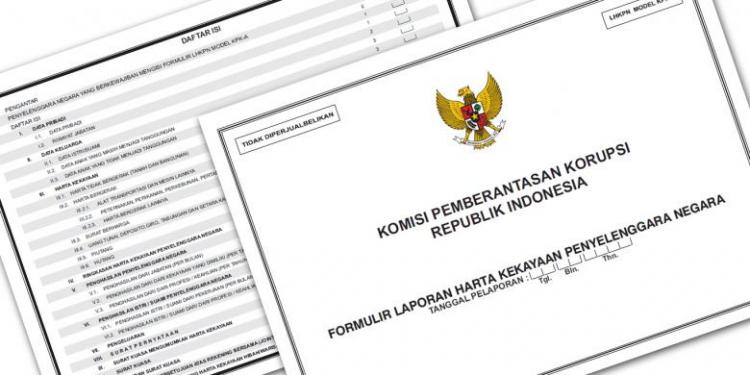Obligatory Property Reporting for Candidates of the Legislative Bodies

The General Election Commission (KPU) plans to require all legislative candidates participating in the 2019 Legislative Election to submit the State Administrator Property Report (LHKPN). This obligation will be regulated in a KPU Regulation (PKPU) on the nomination of legislative members.
The KPU states that the LHKPN will be submitted to the Corruption Eradication Commission (KPK). Evidence of receipt from the KPK will have to be included during the nomination process of legislative members. This provision is expected to result in the 2019 elections being more democratic and higher in integrity.
KPU's plan to make property reporting as a condition of candidacy in the 2019 Election can be regarded as a progressive action, considering that the requirement is not regulated in Law Number 7 of 2017 about General Election (Election Law).
In addition to encouraging the rise of legislative candidates with integrity, the requirement to submit LHKPN at the beginning of the nomination is expected to reduce the burden of KPK in demanding the property reports from elected legislative members. In general, when already elected, many legislative members are reluctant, or even unwilling, to report their wealth to the KPK.
This fact can be seen from KPK’s data from 2017, which mentions that from all legislative members (DPR/DPD/DPRD) of the 2014-2019 period, or 14,173 persons, only 4,406 or 31.09% submitted their LHKPN. The remaining 9,767 or about 68.91 percent have never submitted their LHKPN to KPK. The number of legislative members who never reported their wealth to the KPK is higher compared to other agencies such as the executive, state-owned/regional-owned enterprises, and the judiciary bodies.
The lack of awareness to report the wealth of the lawmakers is saddening, considering this is mandated by Law Number 28 of 1999 on the Implementation of a Clean and Corruption, Collusion and Nepotism-Free State Administration.
ICW notes two causes for the low compliance of legislative members property reporting. First, the obligation of reporting property is not made as a condition to become a member of the legislature. In the Election Law, there are a number of conditions to be members of the legislature, but there is no mention of the necessity for candidates to report their wealth. Second, there is no criminal penalty for state officials, including legislature members, who do not report their wealth.
Despite the rejection of a number of political parties, the KPU should not hesitate to immediately enact a regulation requiring wealth reporting for candidates who will participate in the 2019 election. Again, this effort is intended to produce legislative members with integrity and willingness to work seriously for the benefit of the people.
As in the slogan “kalau bersih kenapa risih” (‘Why feel uneasy if you are clean’), if the candidates who will participate in the 2019 election are clean, they do not need to be uncomfortable in reporting their property. (Eson/Ade)










